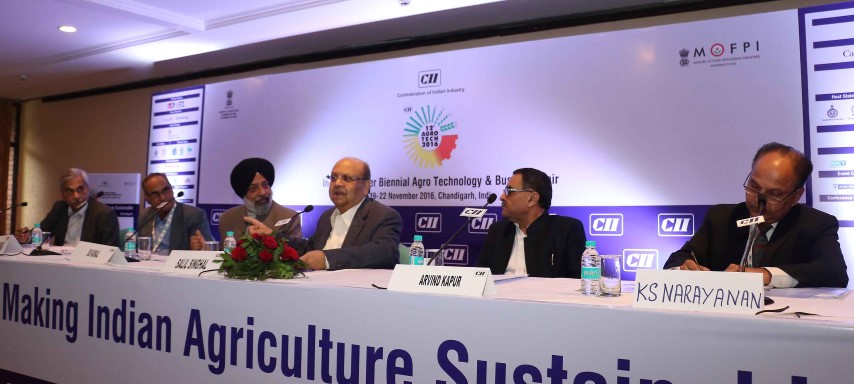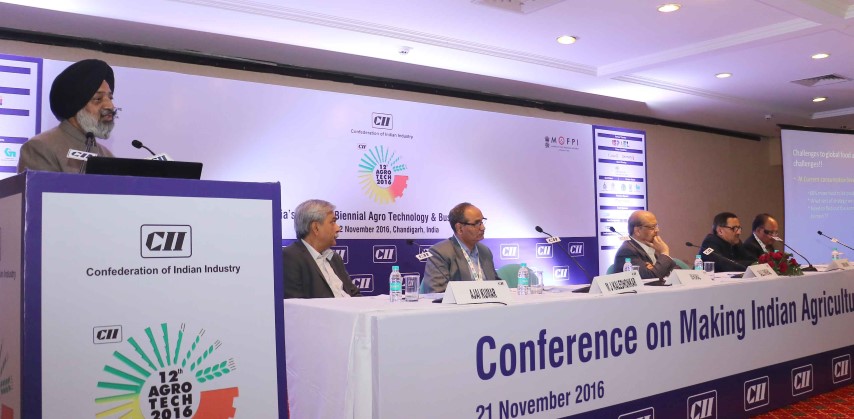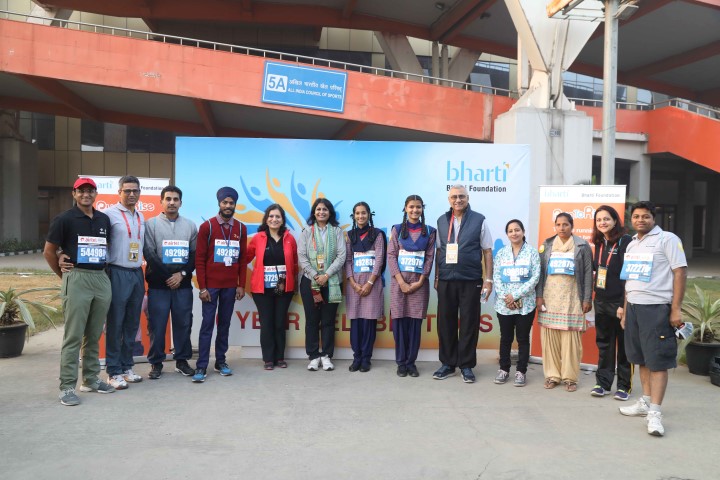Session on Making Indian Agriculture Sustainable at CII Agro Tech 2016
NewZNew (Chandigarh) : Session on ‘Making Indian Agriculture Sustainable’ at CII Agro Tech 2016 focused on solutions to one of the most pressing problems of today – depleting natural resources. Technology-driven solutions to these problems were discussed at the session at Shivalik View on Monday.
Dr Nirmaljeet Singh Kalsi, Addl Chief Secretary-Development & PWD(B&R), Government of Punjab, said by the year 2030 the demand for food would rise by 40% and by 2040 it may further increase by 60%. Similarly, for water the shortage may rise by 40% by the year 2030. He also mentioned thatthere were several challenges which Punjab was facing which included sustainability of water, decreasing soil fertility and unsustainable Minimum Support Price (MSP).

The government, he said, was making sustained efforts to sustain natural resources and double the income of farmers with the calibrated efforts.
He also stressed that the productivity could only be increased if farmers start thinking in terms of diversifying.
The session kicked off with the inaugural address of Mr Salil Singhal, Co-Chair, CII National Council on Agriculture, and Chairmanand Managing Director PI Industries. He said conserving water resources is critical to growth. “Thegood thingisthere is growing awareness about it and even school children are wellaware of the gravity of the situation,” he said.
In his special address, Mr Gokul Patnaik, Chairman, CII Agro Tech 2016 Conferences & Chairman, Global Agri system Pvt Ltd saidtill now the country was more focused onremoving povertyand building on food security. But with the changing times, there is greater emphasis on natural resource management, climate-smart agriculture and renewable energy.Healso highlightedthe needfor the use of solar energy while citing the example of Holland. The country, he said, was making the bestuse of solar energy. “solar energy has a great potential which we need to tap in India,” he said.
Underlining how grave the situation was he cited example of Punjab and mentioned that as many as 104 out of 145 blocks havebeen identified asgrey zones with the over exploitation of groundwater in thestate.Hestressed that there was need to provide rationalised electricity to farmers, which at present was being provided free of cost leading to over exploitation of water resources and it was also causing shortage of electricity.

Speaking on the issue of improving productivity hepointed out thatgenetic science had helped in creating seeds which are flood or draught resistant.Stressing on the need for renewable energy he mentionedthat using solar energy, solar pumps and cold storagescan help in improving productivity and by using untapped resources. “Infactthere areseveral ancient and traditional ways which we are rediscovering and we are finding them useful in conserving ourresources. Therefore there was a need for combining modernand traditional techniques to conserve and sustain resources,” hesaid.
In his special address, Dr SS Kukal, Additional Director Research (NRPHM), Punjab Agriculture University (PAU), cautioned that if steps were not taken now, in the next two decadesPunjab could be like Rajasthan in terms of shortage of water.Stressing on the need for rain water harvesting he mentionedthat 90% of water in urban areas was going waste.
Later, Mr Sanjeev Asthana, Lead– CII Core group on Sustainability and Founder & Director, Ifarms Venture Advisors Private Ltd, summed up the discussion while stressing on the need for developing a comprehensive set of policy and actions and technology solutions to deal with the growing problem of depleting resources.






